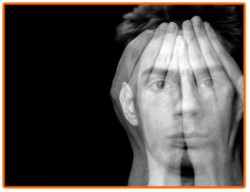5 Commonly Treated Withdrawal Symptoms in Alcohol Detox
Anyone entering alcohol detox after drinking for a number of years will experience what’s known as alcohol withdrawal syndrome. Data gathered by the National Institutes of Health show as many as 2 million Americans experience some form of alcohol withdrawal within any given year.
Alcohol’s role as a central nervous system (CNS) depressant continues to slow down central nervous system functions for as long as a person drinks. Once a person stops drinking, the central nervous system goes into a hyper-excitable state as it attempts to return to normal functional capacity. As the body continues to heal, existing CNS chemical imbalances take the form of alcohol detox withdrawal symptoms.
Alcohol’s effects on the CNS disrupt the brain’s chemical-based communication system made up of several different neurotransmitter chemicals. According to the University of Maryland Medical Center, long-term alcohol consumption offsets the balance between inhibitory and excitatory neurotransmitters. Together these chemicals regulate the various functions throughout the body. In effect, alcohol consumption greatly increases inhibitory neurotransmitter activity.
When a person enters alcohol detox, excitatory neurotransmitter activity increases considerably, which accounts for the often distressing withdrawal symptoms experienced. A person will continue to experience withdrawal symptoms until neurotransmitter levels return to normal.
During the alcohol detox process, the five most commonly treated withdrawal symptoms are:
1. Agitation

Alcohol withdrawal can cause psychosis and hallucinations. Get medical help for your detox!
Agitation symptoms take the form of tremors, problems sleeping and diminished appetite. The first step within the alcohol detox treatment process involves calming the person down by reducing symptoms of agitation. Doctors usually prescribe anti-anxiety medications, such as benzodiazepines. Benzodiazepines help to reduce excitatory neurotransmitter activity in the brain.
The most commonly used anti-anxiety medications include:
- Librium
- Serax
- Valium
- Xanax
- Ativan
2. Delirium Tremens
People who’ve consumed alcohol for as long as 10 years or more will most likely experience delirium tremens symptoms when entering alcohol detox. According to the U.S. National Library of Medicine, delirium tremens is one of the more severe symptoms that results from erratic and drastic fluctuations within a person central nervous symptoms. Delirium tremens symptoms include:
- Confusion and disorientation
- Delirium
- Short attention span
- Sleeping for days at a time
- Extreme feelings of fear
As delirium tremens can quickly become a life-threatening condition, immediate treatment involves administering anti-anxiety medications through an IV.
3. Seizures
Alcohol-induced seizures, also known as generalized tonic-clonic seizures are another dangerous alcohol detox withdrawal symptom. According to the American Family Physician site, alcohol-induced seizures differ from other types of seizure conditions in terms of where they originate from in the brain-stem. Treatment for seizures includes IV-administered anti-anxiety medications. For people who already have a history of seizures or have an existing epilepsy disorder, treatment may require an IV-administered opiate, such as Dilantin coupled with a benzodiazepine medication.
4. Psychosis
A person may start to exhibit psychotic behaviors after entering detox treatment. Psychotic behaviors can take the form of extreme aggression, hearing voices and an overall disconnect from the real world. Anti-psychotic medications, such as Haldol are typically used as a treatment.
5. Hallucinations
It’s not uncommon for long-time drinkers to experience hallucination symptoms shortly after entering alcohol detox treatment. Hallucinations may be visual, tactile and/or auditory in nature. Doctors normally treat hallucination symptoms with anti-psychotic medications.




